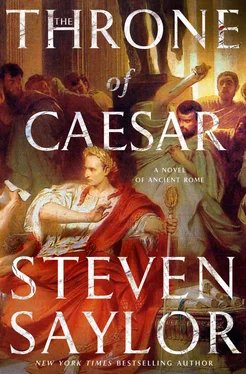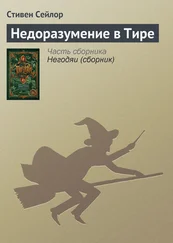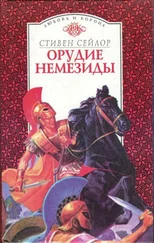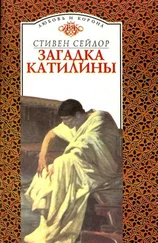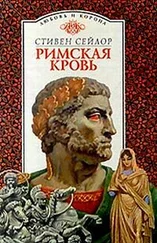Стивен Сейлор - The Throne of Caesar
Здесь есть возможность читать онлайн «Стивен Сейлор - The Throne of Caesar» весь текст электронной книги совершенно бесплатно (целиком полную версию без сокращений). В некоторых случаях можно слушать аудио, скачать через торрент в формате fb2 и присутствует краткое содержание. Год выпуска: 2018, Издательство: St. Martin's Press, Жанр: Исторический детектив, на английском языке. Описание произведения, (предисловие) а так же отзывы посетителей доступны на портале библиотеки ЛибКат.
- Название:The Throne of Caesar
- Автор:
- Издательство:St. Martin's Press
- Жанр:
- Год:2018
- ISBN:нет данных
- Рейтинг книги:5 / 5. Голосов: 1
-
Избранное:Добавить в избранное
- Отзывы:
-
Ваша оценка:
- 100
- 1
- 2
- 3
- 4
- 5
The Throne of Caesar: краткое содержание, описание и аннотация
Предлагаем к чтению аннотацию, описание, краткое содержание или предисловие (зависит от того, что написал сам автор книги «The Throne of Caesar»). Если вы не нашли необходимую информацию о книге — напишите в комментариях, мы постараемся отыскать её.
The Throne of Caesar — читать онлайн бесплатно полную книгу (весь текст) целиком
Ниже представлен текст книги, разбитый по страницам. Система сохранения места последней прочитанной страницы, позволяет с удобством читать онлайн бесплатно книгу «The Throne of Caesar», без необходимости каждый раз заново искать на чём Вы остановились. Поставьте закладку, и сможете в любой момент перейти на страницу, на которой закончили чтение.
Интервал:
Закладка:
But as I say, this weird warping of my perception took place only a few times, and very briefly; it came and went in the blink of an eye. I attributed these hallucinatory flashes to the extreme stress of the previous day, lack of sleep, and the inbred religious shame I felt for what I was doing. They had nothing to do with Dionysus—or so I told myself.
XXXIX
On that first day after Caesar’s death, Rome was like a man with a fever, twisting and turning and muttering in delirium. In countless houses all over the city, countless men (and many women, no doubt) asked themselves and each other what had happened, and how, and who had done it, and why, and what was to be done now. And countless answers were given and pondered and rejected or provisionally accepted until some new idea or question or fear intruded, and the feverish delirium spiraled ever deeper. How many false rumors were spread, how many crimes great and small committed, how many plots and counterplots hatched that day?
While I was watching Fulvia and the rehearsal of the Liberalia in my garden, Lepidus was holding a public meeting in the Forum, using his troops to keep order. This gathering was very different from the one the previous day. Speakers condemned the assassins. Some demanded vengeance for Caesar and said that Lepidus should order his soldiers to storm the killers’ stronghold. Lepidus, acutely aware that the presence of his legion within the city was illegal, declined to compound the crime with a wholesale massacre in the sacred precincts atop the Capitoline. That hill offered excellent vantage points from which to look down on the gathering in the Forum. What did Brutus and Cassius and the rest think, watching as one speaker after another extolled the virtues of Caesar and railed against his killers?
Eventually, Lepidus dispersed the gathering. He posted his troops at various key spots around the city, then went to Antony’s house, probably arriving at about the same time that Fulvia returned home from the rehearsal in my garden. After much discussion, Antony and Lepidus and the others convening there decided to take no action against Caesar’s killers, at least for the moment. A legal resolution would be pursued first.
Antony sent a message to the Capitoline proposing an emergency meeting of the Senate the next day. Though Brutus and the other assassins refused to come down from the Capitoline, they agreed to send representatives.
Messengers from both sides combed the city, alerting their friends in the Senate of the meeting the next day, each side hoping to muster as many supporters as possible.
At some point that evening, Antony and Fulvia went to the Regia. They offered condolences to Calpurnia, then moved on to more practical matters. I imagine Fulvia guided the conversation, which must have required extraordinary tact. As consul, Antony wanted Calpurnia to give him control of Caesar’s state papers. She consented. Then, somehow, Calpurnia was convinced to give Antony control of Caesar’s huge private fortune, which amounted to a quarter of a million pounds of silver.
As fevers sometimes temporarily abate, so that night an uneasy peace descended on Rome, allowing its people to sink for a while into the oblivion of sleep.
DAYS EIGHT, NINE & TEN: MARCH 17, 18 & 19
XL
The meeting of the Senate on the second day after Caesar’s death was held at the Temple of Tellus, not far from Antony’s house.
Meto urged me to attend. “You won’t have to speak, Papa. But you must show your face. You must assert your prerogative as a full-fledged senator. Show that you’re entitled to be there as much as any of the others.” After a pause, he added, “It’s what Caesar would have wanted.”
Diana also weighed in. “And imagine, Papa, instead of observing from the outside, as you’ve done your whole life, you can actually see what it’s like to be inside the Senate. Oh, how I envy you! You’ll be doing something I can never hope to do.”
Bethesda didn’t need to speak. She made her will known by the expression on her face, which countenanced no disagreement.
For their sake, I put on my toga and made my way to the Temple of Tellus.
* * *
When I think back to those days between Caesar’s death and Caesar’s funeral, my mind is a muddle of speeches. Speeches before the Senate, speeches in the Forum, speeches on street corners. Words, words, words—endless words, as repetitious and numbing as those dances and chants of the Liberalia rehearsal.
At that first meeting of the Senate after Caesar’s death, I slipped inside as discreetly as I could. I stood in the most inconspicuous place I could find, feeling much as I had on my rooftop the day before, more spy than participant. I hid myself even from Cinna, whom I saw only from a distance. I said nothing. I only observed.
Those speaking on behalf of Caesar’s killers spoke first. They proposed that the Senate should declare Caesar a tyrant and proclaim public thanksgiving to the men who had freed the city from his illegal dictatorship. Further, to forestall any future reprisals, the killers of Caesar should be granted unconditional and irrevocable immunity from prosecution. What of the sacred vows the killers had made to protect Caesar? That vow was made under duress, they said, and was thus invalid.
Speakers rose to vociferously oppose these ideas, arguing instead that the assassins should be tried as murderers. But these men were surprisingly few in number, and their speeches received only scattered support. Already the idea of a world without Caesar was taking hold in men’s minds. The new reality obliged every man to think of his own good going forward. Caesar was dead, and no act of the Senate could change that. Vengeance on the killers would only set in motion endless vendettas from their numerous and powerful relatives. Rome had shed enough blood in the civil war.
Antony argued against declaring Caesar a tyrant. If his dictatorship were declared illegal, then it must follow that all his public acts would be null and void, as would the public acts of every official he had appointed. All the public land Caesar had granted to his veterans would have to be confiscated by the state. Further, all Caesar’s magisterial appointments, some as much as five years in the future, would be invalid. Hundreds of men, set to become everything from praetors to provincial governors, would be stripped of their promised offices. The state would be in chaos. Violence would certainly ensue.
Antony proposed a threefold compromise. First, the office of dictator, established long ago for emergencies and meant to last only a year, should be abolished altogether. Tyrant or not, Caesar would be Rome’s last dictator. Second, the assassins would be granted immunity from prosecution. Third, all of Caesar’s appointments, acts, and decrees would remain in force. The sovereign authority of the Senate would be restored. Peace, not bloodshed, would ensue.
Both sides of the chamber resoundingly approved Antony’s compromise. Only the most recalcitrant and vengeful partisans objected. From near panic and complete uncertainty, Antony had shown a way to restore order and at least the semblance of unity. He was the statesman of the hour. Messengers were sent to the Capitoline to inform the assassins and beseech them to come down from their stronghold.
* * *
It was a remarkable day for me, standing among my fellow senators, listening to the likes of Cicero and Antony and Piso, Caesar’s famously learned father-in-law, debate.
And yet, in retrospect, the scene I recall most vividly took place outside the Temple of Tellus, after the surprisingly favorable auspices were taken and before the meeting convened. As I stood on the steps, hesitating to go inside, wondering if anyone would challenge me, Cinna the praetor—the other Cinna, as I would always think of him—arrived. Not being one of the assassins himself, but supporting their cause, he had dared to come down from the Capitoline to speak on their behalf.
Читать дальшеИнтервал:
Закладка:
Похожие книги на «The Throne of Caesar»
Представляем Вашему вниманию похожие книги на «The Throne of Caesar» списком для выбора. Мы отобрали схожую по названию и смыслу литературу в надежде предоставить читателям больше вариантов отыскать новые, интересные, ещё непрочитанные произведения.
Обсуждение, отзывы о книге «The Throne of Caesar» и просто собственные мнения читателей. Оставьте ваши комментарии, напишите, что Вы думаете о произведении, его смысле или главных героях. Укажите что конкретно понравилось, а что нет, и почему Вы так считаете.
